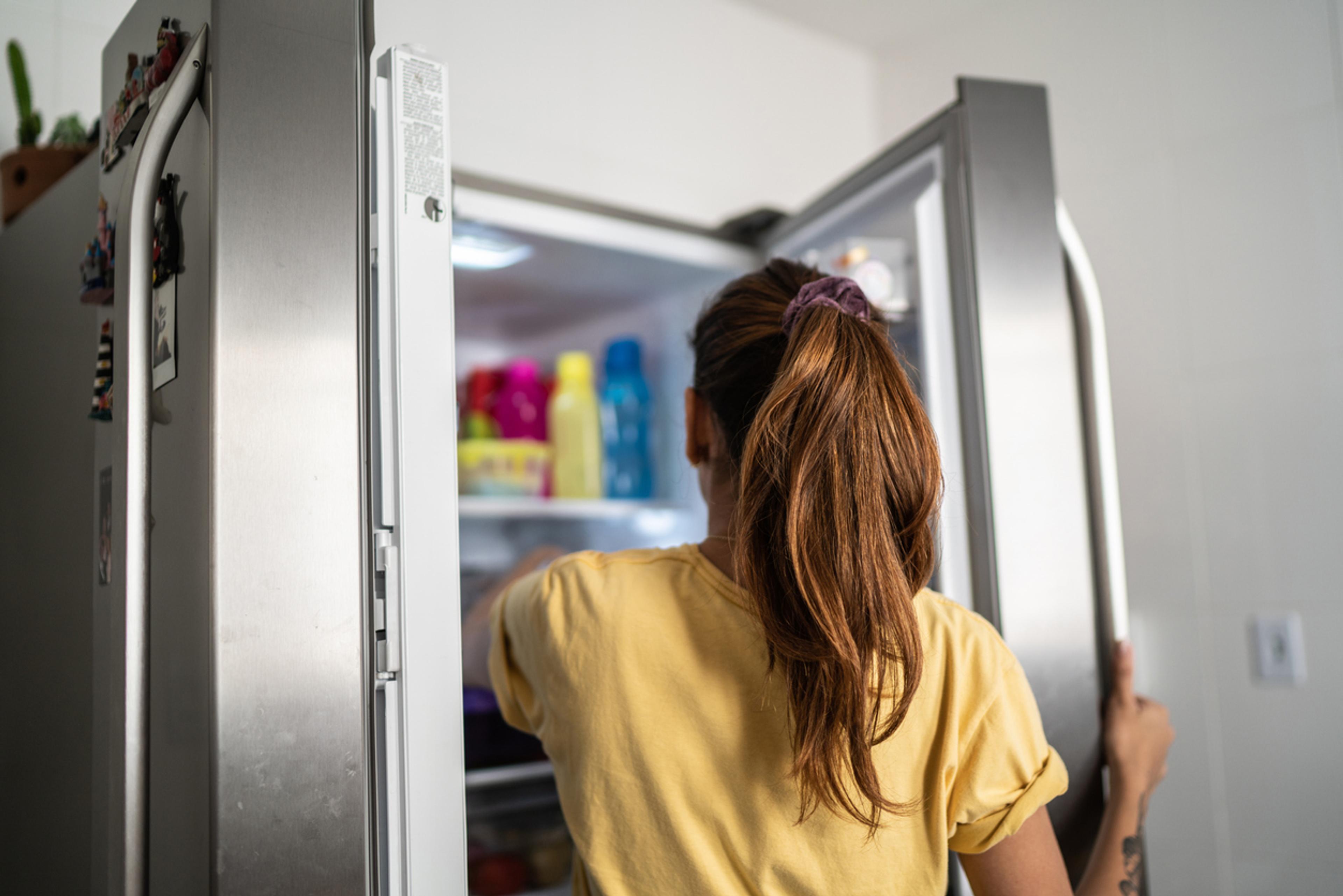

When J.D. Ouellette’s daughter was diagnosed with anorexia, she was a senior in high school. She and her husband pulled her out of school to complete a partial hospitalization program, but when the program was complete, they faced a choice: should she go to college as planned? Given how early they’d caught the eating disorder and how much hard work everyone had put in, they landed on a “yes” with the full support of their treatment team.
“Her first semester she really did try so hard to do what she needed to do, and she was able to hang onto recovery by her fingernails,” recalls Ouellette, Equip’s Director of Lived Experience. “She relapsed at the beginning of second semester, and thankfully her roommates were immediately all about tough love: you call your parents or we will.” She left school for several months to resume treatment and solidify her recovery, and when she eventually returned to campus, things were different. “We were much wiser and used an accountability contract with frequent weight checks to keep things on track,” says Ouellette. “This was integral to her full healing.”
Indeed, Ouellette’s daughter isn’t alone in her experience. A NEDA survey estimated that between 10-20% of young women and 4-10% of young men in college suffer from an eating disorder, and there’s been a significant increase in eating disorders among college students since the pandemic hit. When you look at the characteristics of the college experience, you can see why it might be challenging for those vulnerable to eating disorders: there’s sudden, newfound independence; an unfamiliar environment; an abundance of food choices and food-centered activities without parental guidance; social and academic stress; and the ubiquitous fear of the “Freshman 15,” among other harmful examples of diet culture.
However, college can also be an enriching, positive experience, helping young people gain a greater sense of self, build lifelong relationships, and explore the possibilities for their future. Which direction it goes depends largely on where someone is in their recovery, making it essential that families are honest and intentional when they decide whether or not their loved one is ready. So how can you make that choice? Let’s get into it.
Why is it so important that my child be well on the way to recovery before going to college?
If someone has started their recovery journey and seems to be doing well, it might be tempting to go ahead with big life changes, like heading to college. They’re doing a great job, so shouldn’t they be rewarded with this opportunity? Couldn’t the challenge even help recovery?
Unfortunately, both research and anecdote show that’s not the case. If a person isn’t stable in their recovery when they leave or step down from treatment, they’re much more vulnerable to relapse, especially when thrown into a high-risk setting like a college campus. For patients whose recovery involves weight gain, numerous studies show that leaving treatment before becoming fully weight restored increases risk of relapse.
“What I didn’t really know in my bones until after her relapse is that sending your child to college when not in full, robust, long-term recovery is actually depriving them of the experience both you and they are envisioning,” Ouellette says. “It requires some recovery time under one’s belt to live a bit more effortlessly. To be able to say yes to midnight pizza in the dorm and road trips that require stocking on gas station snacks and sitting in a car without obsessing over whether you can get out and go on a run. To have a brain that’s free to learn and grow and build connections without valuable cognitive real estate being taken up by trying every day to do a very hard thing, on your own, in a very triggering environment where diet culture reigns, structure is largely absent, and food options may be challenging.”
How to know if college is the right choice for recovery this year
To decide whether or not your loved one is ready to go to college, Ouellette recommends thinking of their whole life, not just this chapter in it. While it may feel like college is the thing to do at this moment—because their peers are going, because it was the plan—opting out of that thinking frees you to truly prioritize recovery, which will enable your child to build a life worth living in the many years ahead.
But even once you’re thinking of their life as a whole, you’re still left with making the ultimate decision: are they ready or not? Will college jeopardize their recovery, or enhance it? Ouellette, along with Jennifer Derenne, MD, Equip’s VP of Medical Care, and Gabriela Cohen, RD, Equip registered dietitian, shared 12 questions parents and family members should ask themselves when making this choice:
- Is your loved one medically stable? If there are any indicators of medical instability, like hydration concerns or an inability to maintain a stable weight range while at home, college is a risky choice.
- How long have they been medically and psychologically stable? While there’s no set amount of time in recovery for a young person to be ready to go to college, Ouellette encourages families to wait until their loved one has six full months of independence and weight maintenance. Says Derenne, “the longer the stability, the higher the level of success.”
- Do they have a relapse prevention plan? And if so, are they aligned with what it says and on board with a plan to track their recovery with objective measures? An accountability plan with frequent weight checks, like Ouellette put in place with her daughter, might be a smart choice.
- Are they aware of what triggers their eating disorders? When those triggers arise, are they comfortable reaching out for support and using coping skills?
- Are you suspecting any sneaky behaviors, like lying about food intake, hiding food, or engaging in compensatory behaviors? “Think about how they act after eating their fear foods,” advises Cohen.
- Are they able to plate meals and snacks for themselves using appropriate portions and without restricting any food groups? “I would highly recommend plating practice before transitioning to being on their own at college,” says Cohen.
- Can they eat freely and flexibly? Cohen emphasizes that it’s important for a young person going to college to be able to try new foods and eat in potentially challenging environments, like in restaurants, on the go, while traveling, and around other people.
- How is their time management and ability to prioritize recovery when life gets stressful? College comes with many academic and social demands, and it’s important for a young person to be able to put recovery first when things become hectic. “Think about current situations at home,” advises Cohen. “Are they able to still make time for meals and snacks while having to study for school or preparing for a special event?”
- Do they have a healthy relationship with exercise? This means being able to practice flexibility around their exercise routine, refueling properly after a workout, resting when necessary, and, as Ouellette puts it, pursuing “movement based on joy versus compensation for eating or compulsion to move.”
- Will they live alone or with a roommate? If it’s the former, who can you reach out to if you’re concerned? If it’s the latter, do you have their contact information and does your loved one agree to inform them about the situation?
- Will there be adequate medical and mental health services in place at college? Derenne points out that all schools are different in terms of medical and mental health services offered, making it important to suss out what support and resources your loved one will have while away at school, if any.
- What would be the logistics in the case of a medical or psychiatric emergency? Parents and families should think about how close the school is to a hospital, what the options are for transportation, and how long it would take a family member to get there if there were a problem.
Being honest with yourself, answer the questions above and think about what your answers mean for the likelihood of your child maintaining their recover\y while at college.
If their recovery is far enough along and the right support system is in place, college can be an exciting opportunity for them to gain independence and begin to build a life beyond their eating disorder. But if recovery is too fresh or the environment too challenging, college could be a major setback. “I caution against ‘magical thinking,’ or believing that things will improve away from home,” says Ouellette. “For most people, most of the time, the opposite is true.”
Should my child be included in this decision?
In an ideal world, the choice about whether or not to go to college would be made collaboratively as a family. Cohen points out that having the patient’s insight can be especially helpful when it comes to determining the type of support and check-ins they might need while away at school, and identifying red flags that might signal a need to come home.
But in cases where the eating disorder brain still maintains control, parents need to take the reins. “At the end of the day, it really is a family decision, and we empower parents to lead that decision-making process with the support and consultation of their treatment team,” says Derenne. “With an adult patient, it’s always preferable to work collaboratively if possible. But if a young adult isn’t at a point where they’re able to make decisions to prioritize health and well-being, we encourage parents to step in and make that decision.”
If you’ve decided that your loved one isn’t ready for college, it’s understandable for them to have big, negative feelings about that choice: anger, resentment, sadness, frustration. If this comes to pass, here are some strategies to hold strong in your decision while preserving your relationship and helping your loved one cope:
- Be firm and loving. “I’d encourage families to be firm and consistent while also being warm, hopeful, and understanding,” says Derenne. “It helps a lot for parents to validate the disappointment and frustration their child is likely to be experiencing.”
- Set clear expectations. Cohen advises making it clear what your loved one needs to achieve to show that they’re ready for college. “When those expectations are set, they can be motivating for the child to work toward and fight past recovery ambivalence,” she says. You can use the questions above to begin to draft a list of what needs to happen before college is an option.
- Try to find a middle ground. While going away to college might not be possible at the moment, that doesn’t mean your loved one can’t participate at all. Can they take courses online? If the school is close, can they go part-time?
- Fill life with other things. Not going to college along with their peers can feel tremendously disappointing for young people, so it’s important to help them find other things to engage in and look forward to. Derenne advises that families work together to actively map out how to achieve their child’s goals, which could include things like volunteer efforts or taking an interesting class they might not otherwise consider.
Making a decision like this is never easy—and it can be particularly hard when the choice you land on isn’t the one that your loved one wants. But in the end, prioritizing recovery will be well worth whatever disappointment and emotional challenges this season presents. “Your recovered child will understand and embrace this choice at some point, just not likely the day they learn they’re not going to go to school,” says Ouellette. “And that’s okay. We can do and survive hard things.”
- Eating Disorders on the College Campus,” NEDA, February 2013.
- Tavolacci M-P, Ladner J, et al.. Sharp Increase in Eating Disorders among University Students since the COVID-19 Pandemic. Nutrients. 2021; 13(10):3415. https://doi.org/10.3390/nu13103415
- Frostad, Stein et al. “BMI at Discharge from Treatment Predicts Relapse in Anorexia Nervosa: A Systematic Scoping Review.” Journal of personalized medicine vol. 12,5 836. 20 May. 2022, doi:10.3390/jpm12050836







